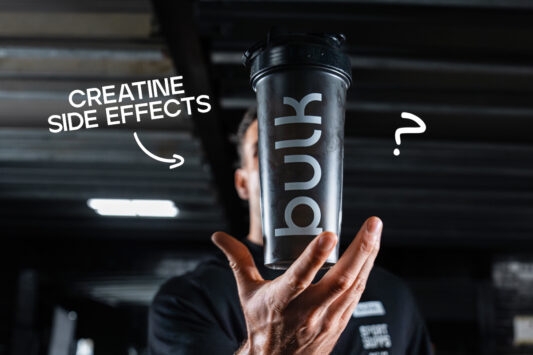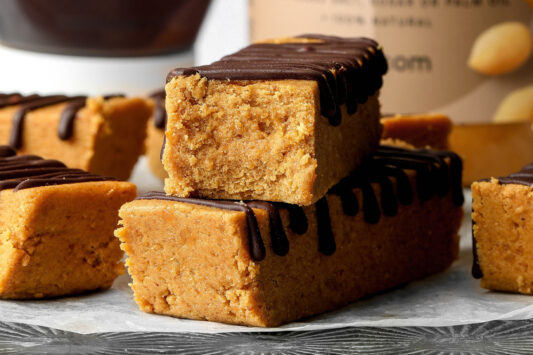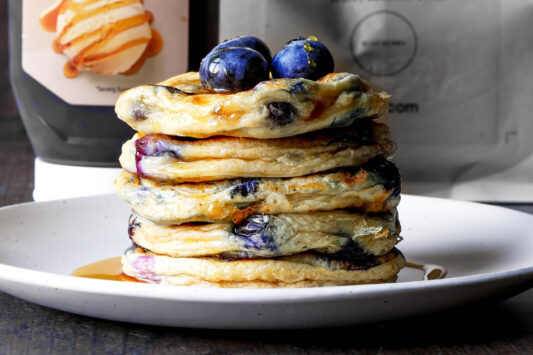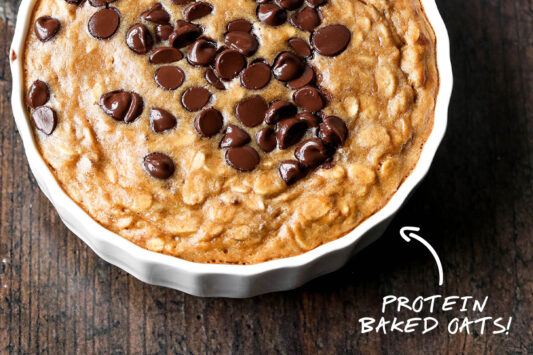The idea of clean eating is extremely popular at the moment. There are a few potential points to think about when it comes to eating clean and looking to lose fat.
One of the issues is the perception that if a food is considered ‘clean’ then you can eat as much of it as you like and you will still be able to lose fat. A number of people think this, due to being misinformed and not understanding the basic principle of fat loss.
How To Burn Fat
The process of burning fat is actually very simple. No matter what you read from various sources across the internet and social media, burning fat can be simplified down to a simple formula.
You have to eat less energy than you burn to lose fat.
You have to be in a calorie deficit, which means you must consume fewer calories than your body uses on a daily basis, and this will lead to you losing weight.
If you eat fewer calories then your body will have less energy and it makes up for this missing energy by burning fat as a replacement energy source.
To do this successfully you need to first monitor how many calories you consume on a daily basis. I would recommend using a calorie-tracking app like My Fitness Pal for this. The best thing to do is work out how many calories you consume each day for a whole week; track everything that you eat and drink. Record the total calories for seven days, then add them all up and divide the total by seven. This will give you the average number of calories you consume on a daily basis.
Then you can focus on reducing your daily calorie intake by 300-500, and this will help to instigate fat loss.
This all sounds simple enough right? However, let’s have a look at why taking a ‘clean eating’ approach to your diet might not actually be the best way to achieve a calorie deficit.
It doesn’t matter what you eat – a calorie is a calorie
A calorie is a measurement of potential energy in a food, and a calorie is still a calorie regardless of what food source it comes from.
1g of fat contains 9 calories, 1g of protein contains 4 calories and 1g of carbohydrates also contains 4 calories.
A gram of carbohydrate in brown rice contains the same amount of energy as a gram of carbohydrate in a doughnut. Many people do not understand this simple fact and this is the main reason why so many people fail to lose weight by eating ‘clean’.
‘Eating clean’ is almost seen as a license to eat whatever you want providing it is considered a ‘clean’ food. This encourages people to avoid tracking calories and this can lead to a misunderstanding about just how many calories you’re eating on a daily basis.
Hidden Calories
You need to be wary of the ‘hidden calories’ you consume on a daily basis. For example, the milk or sugar you add to your coffee or the additions you make to your salad lunch.
Having a salad for lunch can be considered as ‘clean eating’, but lets take a moment to consider what you may have in your salad. You may choose to have an avocado. A typical avocado weighs 170g and contains around 270 calories. Maybe you will choose to add another 100g of feta cheese cubes, adding another 260 calories to your salad. Then how about adding some salad dressing to improve the flavour. A drizzle of French dressing can add another 70 calories or more. These additions have increased the calorie count of your salad by 600. Suddenly your salad doesn’t seem so ‘clean’ does it?
Eating ‘clean’ can also lead to people feeling they have earned the right to have a treat and can justify indulging on a glass of wine or a chocolate bar.
The main thing to do to avoid all these potential pitfalls is to make sure you’re tracking your calories and taking into account every ingredient you are adding to your meals and consuming throughout the day.
Prioritising Micronutrients
A ‘clean’ diet plan will be dominated by micronutrients, which are only needed in small amounts by the body. On the face of it eating an abundance of micronutrients through consuming a load of nutritious foods sounds great, but it can also lead to consuming too many calories and this means limited weight loss.
It could also lead to people excluding macronutrients, which are needed in large amounts by the body. You should never completely exclude macronutrients from your diet.
- A lack of protein leads to the breakdown of muscle mass
- A lack of carbohydrates impairs muscle repair
- Too little dietary fat can lead to a drop in testosterone levels and impair normal cell function
It is essential to eat all these macronutrients to maintain overall health and well-being. Excluding any of these macronutrients from your diet can be harmful.
In Conclusion
You can use food to manipulate your calorie intake to lose, maintain or gain weight. The important thing is to get the energy balance right for your goals and following a ‘clean’ eating approach may not always be the best way to achieve this.
About the Author:
Alex Genzel is passionate about health and fitness having been involved in a number of competitive sports from an early age. He has been writing about sports nutrition and training for a number of years, alongside pursuing his passion for bodybuilding and desire to become a certified personal trainer. As well as writing for BULK POWDERS® Alex also has his own blog where he shares his training experiences and advice on supplements.















